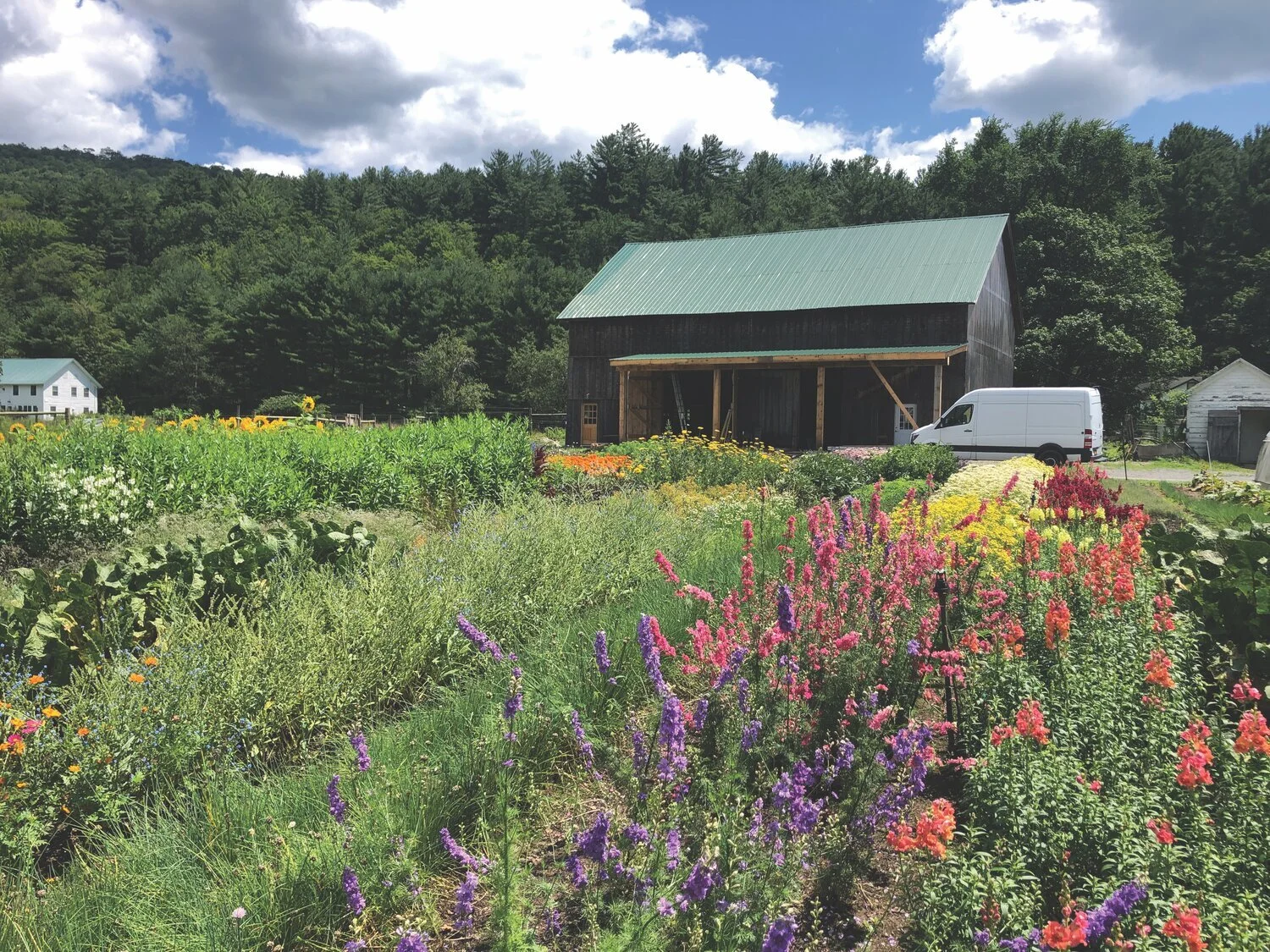The Little Farm That Could
The dream wasn’t huge: Conor and Kate Crickmore wanted to raise their own food and make a small living. It wasn’t supposed to be much more than a gentleman’s farm, a simple life.
But Neversink Farm, just 1.5 acres, turned out to be larger than life. It’s one of the most successful no-till organic farms in the region, and among the highest production farms per square foot, in the entire country. It’s by no means a conventional farm. But Conor isn’t a conventional farmer, either.
Before relocating Upstate from NYC, Conor worked in data architecture, building massive, complicated computer systems. This meant he approached farming from an entirely different perspective-one that limited inefficiencies, and anything else that bogged down the process.
Stop by Neversink Farm today and you’ll find fields in tidy and tightly packed formation: about 50 beds bursting with heads of lettuce and onions, fragrant herbs and kirby cucumbers, hearty artichokes and fennel — vines and vines of San Marzano tomatoes, flowers upon flowers. There are scattered oinks, too, from a field where pigs roam.
But the orderly appearance of today wasn’t always the case. It all got off to a rocky start. Back in 2011, Conor and Kate began with just half an acre that turned out to be riddled with rocks. In order to prepare the first plot for planting, they needed to flip a few feet of soil (in traditional farming, this means the ground had to be tilled) so they bought a heavyweight two-wheel tractor and tilled, and tilled, and tilled.
It wasn’t what they’d had in mind. “My vision wasn’t to work seven days a week, fourteen hours a day on the farm,” admits Conor. “We wanted to earn a living but also enjoy the farm we created.” He wanted a more livable process.
“I quickly abandoned doing any tilling,” says Conor, recalling their first year of never-ending rocks and weeds. He’d worked hard to perfect their soil, so why till it all over again and disrupt their hard work? They achieved this through intensive planting, making the most out of the soil by spacing crops closer together so that good soil stayed intact. This process of elimination became Conor’s signature — removing any steps that felt like grueling repetition.
Under Conor’s eye, they Marie Kondo-ed every inch of the traditional rule book. They scrapped anything that felt extraneous (in the farm’s infancy, they’d planned to raise everything from chicken to honeybees and even trout) and cut out anything that felt like slog (instead of constantly laying down disposable drip lines, they developed their own permanent irrigation system). In time, the farm became lean and in fighting shape, and they’ve been free to imagine, and reimagine what a modern farm can be.
In recent years, they’ve launched a digital market farm course so that fellow upstate farmers The Little Farm That Could could learn Neversink Farm’s techniques; Conor even created a line of specialized no-till equipment to give them all the tools they’d need. “I feel it’s important that farmers do well, and I want them to do really well,” says Conor. “So the tools — and being able to teach — it’s about making a broad and positive impact on farming.”
Most recently, Conor and Kate are giving the public a closer look at their signature process. After a year-long renovation, they’ve turned the farm’s century-old barn into a rustic venue for one-of-a-kind dinners. Nearly every ingredient is sourced from the farm, often harvested the same day. It’s an opportunity to understand each ingredient in context. “It’s not a farm-to-table experience, it’s a table at the farm experience,” says Conor.
Regardless of the theme (past dinners have ranged from smoking to fermenting and foraging), there’s an aspect of the food’s cultivation or processing that offers a way for visitors to find joy in the nitty-gritty of farming. “Every piece of the dinner, every piece is curated and important,” says Conor. “There’s nothing that hasn’t been thought about.” It gets back to the original dream, one more akin to a homestead, one that translates the entire arm into something self-sustaining and seemingly easy. It makes growing great food not just a dream, but a simple reality.
A note from Conor about Covid-19: I thought at the beginning that maybe our farm business was done for the season. I imagined that people wouldn’t want our vegetables as much anymore, but the opposite has happened. The demand has been overwhelming. People want locally grown food from small producers they trust and know more so than ever. I think this desire for local produce will go on way beyond this health crisis. There is also more of a connection with our customers. I know many more of their names and they now know ours. There is an intense mutual appreciation: them for our handcrafted food and us for them appreciating what we’re offering. Many people have visited our farm online and watched our videos and feel closer to us as a result. There is hope for many good things to come out of this.
By Keith Flanagan
Images Courtesy Of Neversink Farm
Volume 5










